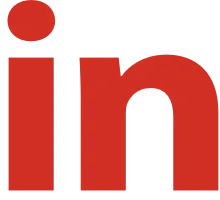It’s mission critical for any organization looking to improve effectiveness to have a solid performance management system.
There are four main stages in the performance management cycle.
- A solid plan that is aligned with the organization’s goals.
- Actions for each stakeholder that are specific and well-defined.
- A process for tracking progress.
- Reviews of progress and performance that can be used to adjust the plan and influence new actions going forward.
Performance management systems are owned by HR departments and operational managers who have to help individuals and groups to optimize their performance.
The key characteristics to develop behind your performance management system are:
- Methods of goal setting.
- Methods of giving and receiving feedback.
- Methods of learning and developing skills.
Understanding how to create an environment that induces flow will improve the action stage of your performance management cycle. Flow can lead to improvements in all of the performance management key characteristics.
Having a great performance management system also increases employee engagement.
Goal Setting
According to University of Toronto psychologist Gary Latham, and University of Maryland psychologist Edwin Locke, who fleshed-out goal-setting theory in the 1960s, the establishment of a goal is one of the easiest ways to increase motivation and enhance performance.
But setting goals is not as simple as it might seem. Research shows that not all types of goals are created equal.
The wrong goal, or writing a goal the wrong way, can actually diminish your performance—instead of improving it.
Latham and Locke reasoned from research that “big goals lead to the best outcomes.” The technical term for this type of goal is a “High, Hard Goal.”
High, Hard Goals work on two important factors for achieving a goal.
- Attention.
- Persistence.
When attention and persistence are combined with conditions that inspire commitment, you have the recipe for a successful goal-setting strategy within your performance management system.
An agency’s goals can be expressed to stakeholders in the form of a High, Hard Goal. This will make it easier to accomplish your organization’s mission.
Another specific type of goal is a Clear Goal. These are the tiny steps along the way that lead to accomplishment.
Clear goals are something we cover in-depth in our Zero to Dangerous training course.
Clear goals are important because they tell employees where and when to put their attention. This is important for time management and improving overall organizational productivity.
Feedback
Part of an effective performance management system should be training employees to see the value of receiving feedback over just getting reassurance.
Feedback can be defined as information about a system that is used as a basis for improvement.
The more feedback cycles you can build into a performance management system, the stronger it will be. Immediate honest feedback encourages more rapid improvement.
When it comes to HR functions like progress reviews, professionals should remind employees that feedback is more valuable than gold. Accepting unsolicited feedback will lead to improvement in key areas. However, the failure of an employee to seek, accept or apply feedback makes realizing their performance potential impossible. Part of the training we do at the collective is teaching performers how to respond to feedback like a pro.
Look for opportunities to bake feedback mechanisms into your performance management system in the form of both formal and informal performance review sessions.
Accelerated Learning
To learn things quicker and remember things better, you need to know how to get into a flow state. Flow allows you to become totally absorbed on the task at hand and process things more deeply.
The 4 Most Important Conditions for Flow are:
- Focus.
- Challenge/Skills Balance.
- Clear Goals.
- Feedback.
We’ve already covered clear goals and feedback in this post, so let’s take a deeper look at focus and the challenge/skills balance.
The Fundamentals of Focus
Remember this sequence: Attention → Focus → Flow. Once you’re in flow, you perform best. Therefore, improving focus will lead to improved performance.
To become better at focusing, you have to battle distraction and defend your attention. Attention is a prized possession. Distraction is shifting your attention to something other than what you should be paying attention to in order to accomplish a goal.
Here are a few ways to massively improve focus and attention.
- Commit to unitasking—doing one thing at a time really well. Multitasking doesn’t work and is a quick path to burnout.
- Focus on sequential processing—break everything down into small ordered steps.
- Fight impulse control by focusing like a monk. Slow down and be disciplined to focus on the task in front of you.
- Gate your attention against sensory overload. Remove notifications on your phone and computer. Block out the time you check email or go on social media and remove anything that takes attention and energy away from the task.
The psychologist William James said, “Attention is the taking possession of the mind, in clear and vivid form, of one out of what seem several simultaneously possible objects or trains of thought.”
The Challenge/Skills Balance
The challenge/skills balance is flow’s most potent trigger. In his book, Flow: The Psychology of Optimal Experience, the “godfather of flow” positive psychologist Mihaly Csikszentmihalyi explains that if a task isn't challenging enough, it will lead to apathy and a lack of motivation towards it. If a task is too challenging, it will lead to anxiety and frustration.
To perform best, there must be a balance between the challenge of the task and the skill of the person charged with doing it. This can be addressed during the performance management review.
The optimum challenge/skills balance is when someone takes on a task that is slightly more challenging (only around 4%) than their current skills can accomplish comfortably. This is a prime condition for achieving optimum performance because it induces flow and further developments new skills.
You will always see evidence of the challenge/skills balance being applied by people who have mastered specific areas of business, the arts or sports.
Performance Management for the Long-term
How do you keep employees engaged and involved long-term?
This part of a performance management system involves coaching employees on five key areas:
Cognitive Literacy: Understanding what’s going on in the brain and body when we’re feeling our best and performing our best.
Maps & Models: Getting employees to see the big picture. A systems-level view. Employees work best when they know where they stand and where they are going.
Body Hacks: Getting your biology to work for you, not against you.
Mind Hacks: Getting your brain to work for you, not against you.
Craft Hacks: Mastering a craft to produce more flow.
There are many different ways of establishing a performance management system. It should be an on-going process with tweaks and upgrades based on the data and feedback you get back. By giving these components consideration when it comes to performance management, you can design a system that helps every employee to perform their best.
Want more tips on making a career a source of flow? Check out this podcast episode of Flow Research Collective Radio.
https://www.flowresearchcollective.com/radio/18





